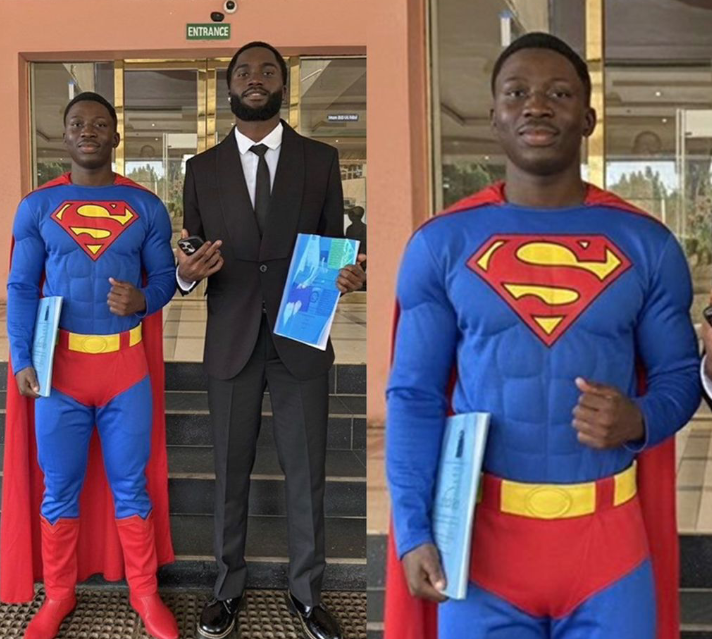
"Business Class in Nigeria Na Water" – Davido’s Aide Israel DMW Reflects on Humble Beginnings with Candid Bus Ride Memories

In an era where social media often showcases only the glitter and glamour of celebrity lifestyles, a refreshing wave of sincerity has emerged from an unlikely source. Israel DMW, the ever-vocal and sometimes controversial logistics manager and personal aide to Nigerian superstar Davido, has once again struck a chord with the public—this time not through drama or antics, but with a striking moment of introspection and honesty. In a viral clip making the rounds online, Israel declared, “Business class within Nigeria na water,” a colloquial expression that loosely translates to “Business class flights within Nigeria are nothing special,” before launching into a vivid recollection of his early days navigating the city in danfo buses and struggling with basic transportation.
The statement was more than just a casual remark; it was a social commentary, a humble confession, and a cultural reset wrapped into one. For many Nigerians, Israel’s words resonated deeply. In a country where upward mobility is both admired and rare, his ability to rise from street-side bus stops to rubbing shoulders with one of Africa’s biggest music exports makes his story both aspirational and relatable. His reflection also sheds light on the deep class divides and the persistent infrastructural challenges plaguing domestic air travel and transportation in Nigeria.
Israel, who has made a name for himself through his unfiltered loyalty to Davido and his animated personality, took viewers back to a time before private jets, designer clothes, and social media followers. In a voice soaked with a mixture of nostalgia and disbelief, he reminisced about waiting long hours at bus stops, often having to “hustle for seat” inside cramped yellow buses filled with heat, sweat, and blaring Afrobeat music. His vivid storytelling painted a picture of resilience and survival in a nation where the vast majority have to hustle daily just to meet basic needs.
“Business class within Nigeria na water” wasn’t just a jab at local aviation services—it was also a declaration that luxury is relative, and sometimes, even the supposedly “exclusive” comforts can’t compare to the basic struggles many have endured. It underlines a sentiment that many Nigerians know too well: that no matter how sleek the suit or how comfy the seat on a 45-minute flight between Lagos and Abuja, it can’t erase the memories of days spent clutching sweaty naira notes while praying for a bus conductor to give you change.
While the tone of his comment may seem humorous on the surface, it speaks volumes about how far he has come. Israel’s rise to prominence didn’t come through traditional education or corporate ladders. Instead, it was through loyalty, perseverance, and an uncanny ability to insert himself into pop culture conversations. His journey is a modern-day parable about the importance of being in the right place, with the right people, at the right time.
Davido, whose generosity and loyalty to his inner circle are well documented, has often been credited with changing the lives of those around him, Israel being one of the most visible beneficiaries. From sponsoring his lavish wedding to flying him across the globe for work and leisure, Davido has provided his aide with a life many can only dream of. Yet, despite the flashy exterior and new lifestyle, Israel seems to remain grounded, often using his platform to offer glimpses into his past. These moments, like his latest comment, serve as both comic relief and cultural insight.
The Nigerian internet, always quick to amplify realness, responded to the viral moment with a mix of laughter, applause, and admiration. Memes flooded Twitter and Instagram, showcasing photoshopped images of Israel seated in a danfo, next to photos of him lounging in first class. Comments poured in from fans who felt inspired by his journey, with many thanking him for “keeping it real” in a world increasingly consumed by fake it till you make it facades.
But there’s also a deeper conversation that Israel’s comment has reignited: the quality of public infrastructure and the perceived disconnect between political promises and lived realities. His offhand remark highlights the irony that what is labeled “business class” in Nigeria often doesn’t measure up to global standards. Flight delays, aged aircrafts, chaotic boarding processes, and exorbitant prices have made local air travel more of a necessity than a luxury, and even for those who can afford it, the experience is often underwhelming.
For many everyday Nigerians, the hustle remains very real. Long commutes, poor road conditions, and overcrowded buses are still part of daily life. Israel’s story is a reminder that while a lucky few escape that grind, the majority remain in it, navigating a broken system with grit and grace. His ability to joke about it without sounding out of touch makes his message even more powerful. It’s a testimony to the resilience of the Nigerian spirit—where laughter often coexists with pain, and where progress, no matter how slow, is still something to celebrate.
In a country where success stories often come coated in mystery or silence about the struggles that preceded them, Israel’s openness is refreshing. He doesn't shy away from telling the world that he once walked through the rain, stood in packed buses, and waited hours just to get to where he needed to be. That transparency makes him more than just Davido’s aide—it makes him a symbol of hope for many.
His viral declaration is more than just a trending phrase. It’s a cultural moment. “Business class within Nigeria na water” is now etched in the lexicon of online Nigeria, serving as a reminder that no matter how far one climbs, the road from the bottom remains part of the story. And sometimes, it takes someone like Israel DMW—raw, real, and unapologetically himself—to remind us that the journey matters just as much as the destination.


